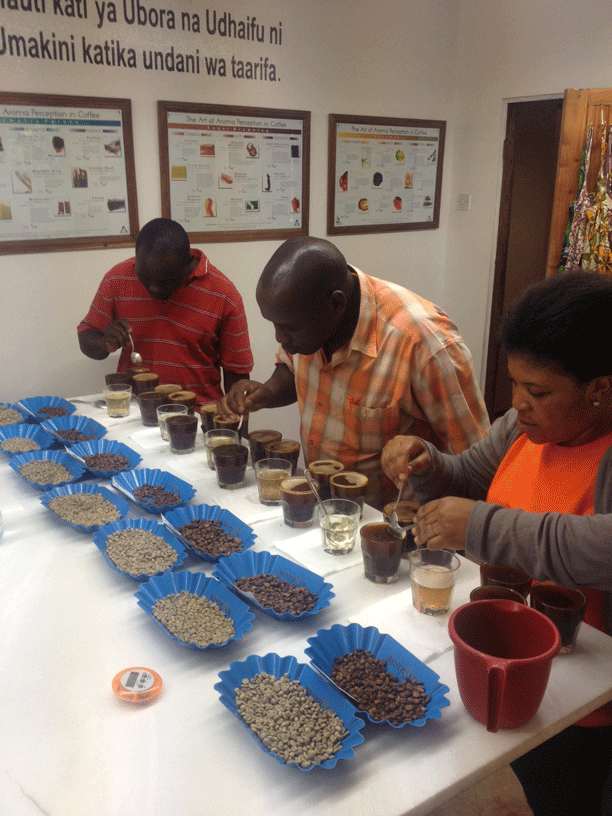Marketing assignment at MVIWAMBI coffee farmer cooperative
28-11-2016Yorick Bruins is attached to the Tanzanian coffee coop MVIWAMBI for 5 months and helps in marketing but also in many other sectors. He wrote a blog about his experiences.
"Every day I learn more about the world of coffee, I am more astonished of the complex nature of this cash crop. Challenges concerning production, processing and market sales in the long value chain are endless, and my three-dollar espresso – served by a bearded barista in a hipster coffee bar in London – seems expensive when I speak with a smallholder coffee farmer about his monthly income.
These challenges make why I am thrilled to be stationed at a coffee farmer cooperative in the remote southwest of Tanzania until February.
MVIWAMBI - the network of coffee farmer groups of Mbinga - has been an Agriterra client for more than three years, and has previously received financial management-, organic agricultural input-, and governance training. They have increased the quality of coffee and amount of members considerably, and a slow professionalisation is set in motion. My main responsibilities at MVIWAMBI revolve around increasing the farmer income by means of improved cooperative marketing skills and a sound marketing plan to secure better farm gate prices. This includes assessing different certification possibilities, new (export) markets and legal requirements to move away from bulk sales at the central coffee auction. With its socialist history, coffee sales outside this auction were prohibited until as recently as 2004, and ways of accessing different markets for coffee smallholder farmer groups are largely unknown.
The main advantage of being stationed at one cooperative for a longer period is the possibility to build a strong relationship and mutual trust, which seems necessary to receive effective feedback from the reactive Tanzanian farmer. Moreover, being fully immersed in their ‘daily cooperative business’ allows for a more repetitive approach to achieve results in increasing (marketing) skills. During my first six weeks here, we mainly focused on increasing the board members’ understanding of the coffee value chain and professionalized the cooperative structure to separate responsibilities. We also visited a number of stakeholders to (re-) connect the cooperative to partners in the coffee value chain, an important role Agriterra can play as broker.
Another focus point to improve the future market position of MVIWAMBI is to increase the awareness of the unique characteristics of coffee, their coffee. Ever since the introduction of this colonial crop by the Germans in the beginning of the 20th century in this region, coffee has been solely produced as export crop. The virtual non-existence of a coffee consumption culture – besides some low quality instant coffee – proves difficult to raise awareness of market needs and quality standards.

Cupping different Mbinga region coffees
One of the simple activities we therefore continuously engage in is the assessment of quality by basically tasting the coffee. This is sometimes conducted in a professional cupping, but mostly by grinding freshly roasted coffee every morning in the office and having a coffee break. This has been the first time for most farmers to taste (and compare) there own coffee of different qualities, and the interest some farmers take at brewing their own cup of coffee slowly bridges the gap between the rural smallholder farmer and that British barista.
Next week we will taste the first (uncertified) organic coffee as a result of Agriterra training, a real accomplishment! The goal to have farmers to become proud of their crop, proud of their job, can indirectly help increase the quality and consequently marketing. They recently started to think of designing a logo and promotional material to give a face to the coffee and build towards a strong brand, a positive development I strongly believe in.
When this cooperative continues to improve the quality and professionalizes its business, premium prices for their hard work are not afar. I nonetheless still have to better explain the gap between those three dollars for an espresso in London and the two-dollar per kilo of green coffee here… And that’s why I’m here until February. I will write more about MVIWAMBI developments at a later date, hopefully with more positive news for the coffee farmers of the unknown – for now - town of Mbinga.
